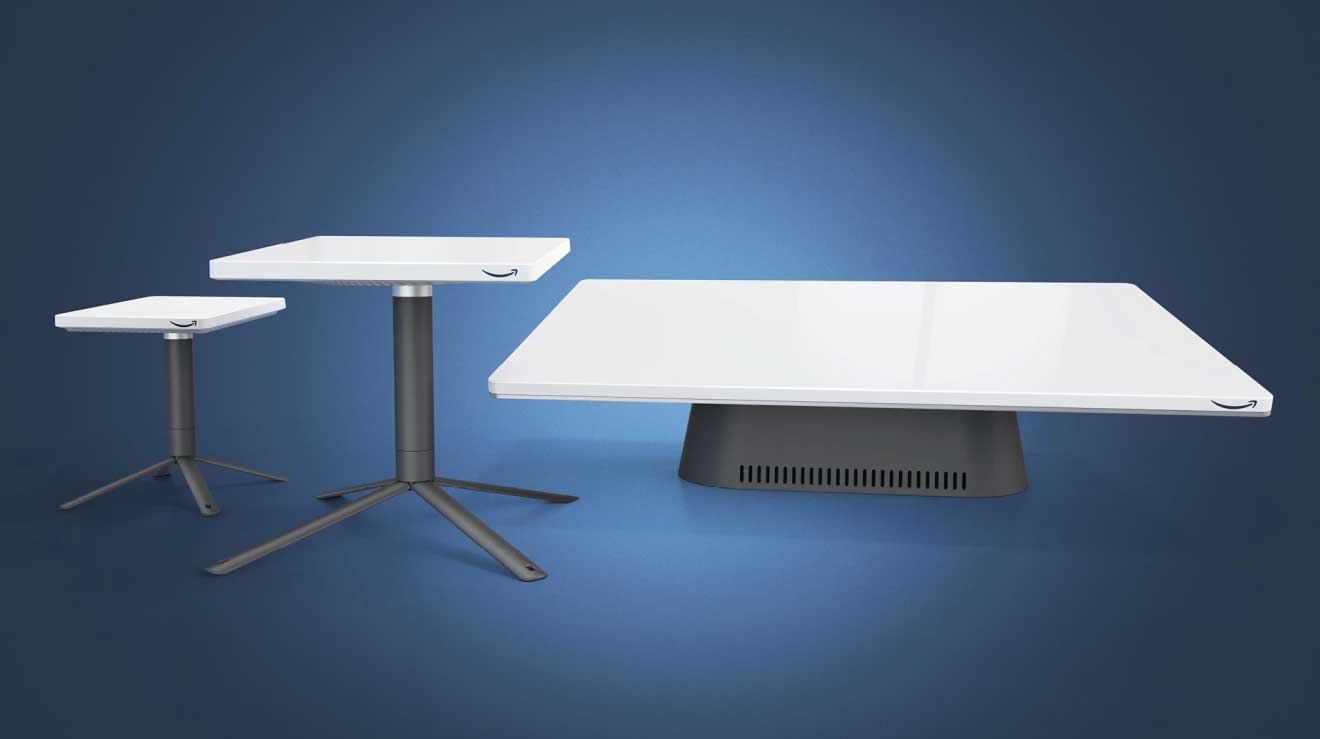
Amazon has finally revealed the hardware that will be used by the first customers of its Project Kuiper internet-from-space service.
The service, similar to Elon Musk’s Starlink, aims to provide broadband to communities around the world that are unserved or underserved by current internet technologies.
The service will use a constellation of small satellites in low Eart orbit to deliver the broadband signal. Further, customers will require a terminal to receive signals from the satellites. Amazon has touted the design of its terminals, and says that it has been working to create something that’s “smaller, more affordable, and more capable” than the terminals offered by SpaceX’s Starlink service.
“Project Kuiper’s standard customer terminal measures less than 11 inches square and 1 inch thick. It weighs less than five pounds without its mounting bracket. Despite this modest footprint, the device will be one of the most powerful commercially available customer terminals of its size, delivering speeds up to 400 megabits per second (Mbps),” writes Amazon in its blog post detailing the service and the device.
According to estimates, Amazon aims to produce the terminals for less than $400 USD (about $549 CAD) each, but we’re still uncertain how much the company will sell them for.
The company also has a second “ultra-compact” design terminal that has a 7-inch-square footprint and will be Project Kuiper’s smallest and most affordable customer terminal. As a drawback, it will only be able to provide speeds up to 100 Mbps.
Finally, Amazon will offer a high-bandwidth design for what it describes as “demanding needs,” which include enterprise, government, and telecommunications applications. This terminal would measure 19 inches by 30 inches and will deliver speeds of up to 1 gigabit per second (Gbps).
The Project Kuiper terminals will be powered by an Amazon-designed baseband chip developed under the name “Prometheus.” According to the company, the chip features the processing power a 5G modem chip found in modern smartphones, and acts as a cellular base station to handle traffic from thousands of customers at once. “In addition to being in Project Kuiper’s customer terminals, Prometheus is also used in Project Kuiper’s satellites and ground gateway antennas, allowing the system to process up to 1 terabit per second (Tbps) of traffic on board each satellite,” writes Amazon.
Amazon aims to deploy its first two prototype satellites on the maiden flight of United Launch Alliance’s Vulcan Centaur rocket. If the satellites perform as expected, Amazon plans for mass deployments to begin in early 2024, with the Project Kuiper service coming online for the first customers later that year.
Image credit: Amazon
Source: Amazon
MobileSyrup may earn a commission from purchases made via our links, which helps fund the journalism we provide free on our website. These links do not influence our editorial content. Support us here.





